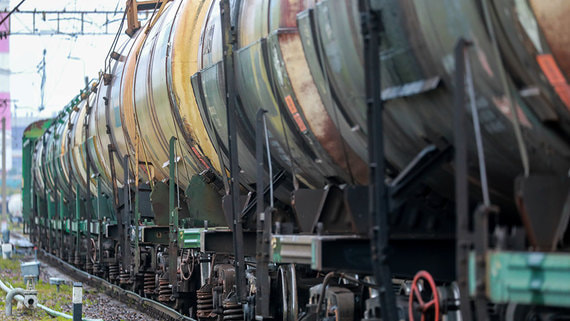Ministry of Energy expects to ban “gray” fuel exports in the near future
[ad_1]

The Russian Ministry of Energy has submitted to the presidential administration and the government a draft law on the “gray” export of petroleum products, according to which only refineries will have the right to deliver abroad. This was announced by Deputy Head of the Department Pavel Sorokin during a joint meeting of the State Duma committees on control and on agrarian issues, transmits Interfax.
“We have already submitted a draft decree, and not only to the government, but also to the administration (of the president). He is now undergoing the final, shall we say, evaluation. And I hope that in the coming days we will be able to come out with an indication of the ban on gray exports,” he said.
Sorokin explained that export fuel prices are now higher than domestic ones, so many unscrupulous players – small traders and tank farms – buy oil products for which a damper was paid from the Russian budget, and then sell them for export. The bill, according to the Ministry of Energy, will provide great support to domestic prices.
As it became known earlier, payments to Russian refineries from the budget under the damping mechanism in August amounted to a record 185.9 billion rubles since the beginning of the year. The indicator exceeded payments for August last year by 7.3%. For the whole of 2022, oil companies received record deductions from the budget for the damper – they increased by 3.2 times by 2021 and amounted to 2.2 trillion rubles. If we compare this year’s figure with August 2021, then the growth will be even more noticeable – by 2.2 times.
Payments are calculated for each ton delivered to the domestic market. This allows companies to maintain a high supply of motor fuel to the domestic market without a significant drop in margins. The marginal prices, after which payments from the budget cease, in 2023 are 62,590 rubles/t for gasoline and 64,620 rubles/t for diesel fuel. If the prices for fuel in the domestic market exceed export prices, then the oilmen themselves must pay to the budget.
[ad_2]
Source link






